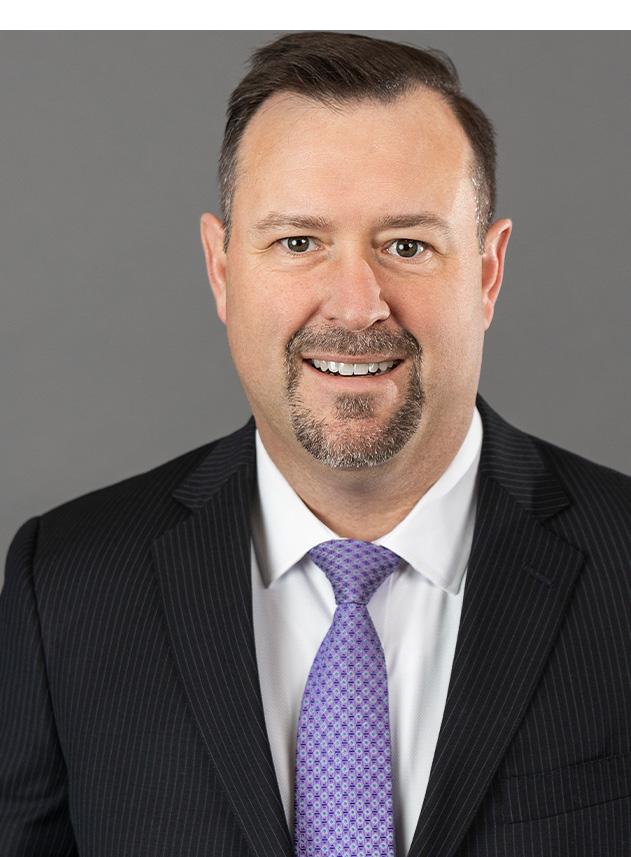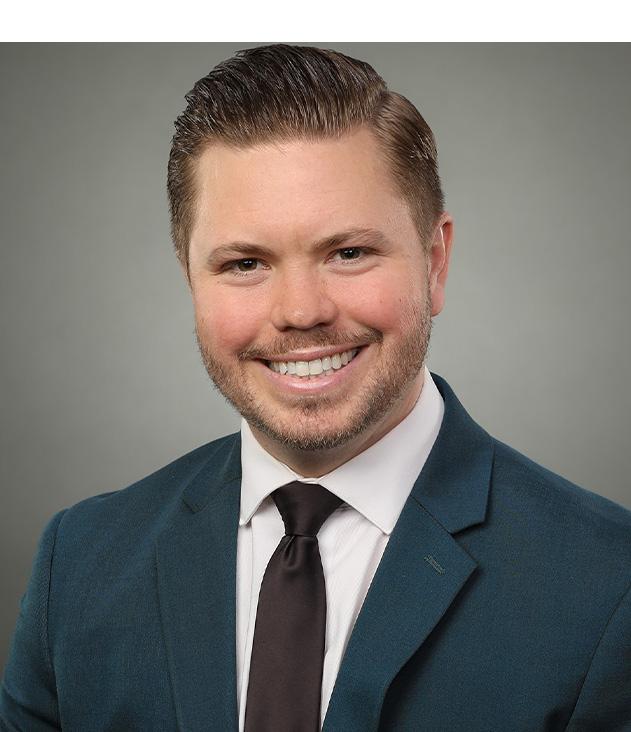

Briefing Room


firm victories
LCW Partner Geoff Sheldon, Senior Counsel David Urban, And Associate Kelsey Ridenhour Win Dismissal Of Dues Deduction Claims.
A county employee sued his employer and union representatives alleging that the County deducted dues from his wages without his authorization in violation of the First and Fourteenth Amendments of the U.S. Constitution. After the suit was filed, the unions refunded the deductions and informed the county that the employee had cancelled his union dues authorizations.
The district court found for the county, and the employee appealed. The Ninth Circuit Court of Appeals determined that the district court properly dismissed the county because the employee could not establish any county liability under 42 USC section 1983 for violating the employee’s rights under the First and Fourteenth Amendments. The county’s action to deduct the dues was not a deliberate choice to violate the employee’s rights; on the contrary, the county was not aware that the employee had not authorized the deductions, and the law does not require the county to ensure the accuracy of a union’s certification to collect union dues.
LCW Partners Suzanne Solomon, Nathan Jackson, And Senior Counsel David Urban Defend Defense Verdict On Appeal.
LCW Partners Suzanne Solomon, Nathan Jackson, and Senior Counsel David Urban convinced the California Court of Appeal to uphold the defense verdict that LCW won in 2022. The jury had rejected a former manager’s claims that she had been fired in retaliation for whistleblowing. In March 2024, the California Court of Appeal dismissed the former manager’s appeal because there was no reversible error as to the two jury instructions the former manager had raised.
new to the Firm!


Lia Maria Fulgaro, an Associate in our Los Angeles office, specializes in labor and employment law matters. With a wealth of experience in the legal field, Lia’s expertise encompasses a wide range of areas, including complex wage and hour class action defense and representation of clients in singleplaintiff employment claims.
discrimination
US Supreme Court Says Employee Need Only Show Some “Disadvantageous” Change To Support
Discrimination In Job Transfer.
Sgt. Muldrow worked as a plainclothes officer in the St. Louis Police Department’s specialized Intelligence Division for nearly 10 years. She investigated public corruption and human trafficking cases, and oversaw the Gang Unit and Gun Crimes Unit. By virtue of her position, Sgt. Muldrow was also deputized as a Task Force Officer with the FBI, had FBI credentials, an unmarked take-home vehicle, and the authority to pursue investigations outside of St. Louis.
Sgt. Muldrow’s job performance was exceptional. In 2017, the outgoing commander of the Intelligence Division referred to her as a “workhorse” and considered her his most reliable sergeant. But the new Intelligence Division commander told the Department that he wanted to replace Sgt. Muldrow with a male officer. The new commander – who often referred to Sgt. Muldrow as “Mrs.” rather than “Sergeant” –testified that a male officer seemed like a better fit for the Division’s dangerous work.
The Department approved the transfer of Sgt. Muldrow to a uniformed position. While her rank and pay remained the same, her responsibilities, perks, schedule, and wardrobe choices changed. Sgt. Muldrow no longer worked with high-ranking officials on priority matters in the Intelligence Division. Instead, she supervised the day-to-day activities of neighborhood patrol officers and handled various administrative matters. Sgt. Muldrow lost her FBI status and vehicle, and her work week went from Monday-through-Friday to a rotating schedule that included weekend shifts.
Sgt. Muldrow sued the city under Title VII to challenge the transfer. The District Court granted the city’s request for summary judgment, and held that Sgt. Muldrow needed to show that her transfer effected a “significant” change in working conditions and produced a “material
employment disadvantage” - a heighted standard that Sgt. Muldrow could not meet. Sgt. Muldrow appealed and the US Court of Appeals for the Eighth Circuit affirmed. The US Supreme Court granted certiorari.
In a unanimous decision, the Court held that an employee who is challenging a job transfer under Title VII need not show that the allegedly discriminatory transfer produced a significant employment disadvantage. Rather, an employee need only show that the transfer brought some harm with respect to an identifiable term or condition of employment.
The Court’s decision overturned the ruling in the Eighth Circuit, and precedent in other circuits, that mandate that employees challenging a transfer under Title VII must meet a heightened threshold of harm requirement, described as “significant,” “serious,” “materially adverse,” or similar terms. As the Court explained, to demand “significance” where the law does not require it adds requirements that Congress enact. The law only requires that employees show an allegedly discriminatory transfer brought about some “disadvantageous” change in employment terms or conditions.
Sgt. Muldrow’s transfer was a significant change in assignment for a long-time, respected police sergeant. The Court found that Sgt. Muldrow’s allegations, if proven true, “left her worse off several times over,” and noted that it did not matter that her rank and pay remained the same or that she could still advance to other jobs. Title VII prohibits making a transfer based on sex with the consequences Sgt. Muldrow described.
Muldrow v. City of St. Louis, Missouri, 144 S.Ct. 967 (2024).
disability
Disability-Based Hostile Work Environment Claims Are Viable Under The ADA And RA.
Dr. Andrew Mattioda began working at NASA in 2000. He has a degenerative defect in his hips and a disease of the spine, which causes uneven vertebrae growth and scoliosis. These physical disabilities required Mattioda to purchase premium-class airline tickets for longer flights so he could frequently change positions and stretch.
By 2011, Mattioda had informed NASA about his disabilities and limitations. From 2011-2018, Mattioda alleged he was discriminated against through: his supervisors’ derogatory comments; denial of work opportunities; unwarranted negative job reviews; and resistance to his requests for disability-based accommodations.
In 2011, one supervisor allegedly responded to Mattioda’s request for a premium-class upgrade and asked why Mattioda could not “just tough it out or suck it up and travel coach.” That supervisor allegedly told Mattioda that he felt another scientist was doing all of Mattioda’s work and that he did not respect Mattioda. The supervisor told Mattioda at a NASA holiday party that Mattioda need not get his hopes up for a promotion.
Mattioda alleged that the supervisor expressed those same negative sentiments to other employees, including telling one of Mattioda’s coworkers that he felt Mattioda was lazy and was “using his medical disability issues to avoid work.” The disparaging comments were so pervasive that some colleagues told Mattioda they viewed the comments as “background noise.”
A supervisor allegedly inhibited Mattioda’s work opportunities by: declining to support Mattioda’s nomination for a promotion while supporting other candidates; failing to authorize a spot for postdoctoral program candidate to support Mattioda’s work; lying to Mattioda that he could not virtually present at a conference; declining to involve Mattioda in projects;
and requiring only Mattioda, and none of his other colleagues, to submit an itemized travel request.
Another supervisor allegedly told Mattioda that he would have to use his own grant money to pay for premium-flight ticket upgrades and warned him that he could lose his job if he kept requesting such accommodations. The supervisor also: expressed concerns on Mattioda’s performance reviews that his disability-related travel limitations would impact his career; lowered one of his ratings on that basis; and criticized him for not traveling to the point of questioning whether he was “still committed to being a high-profile scientist at NASA.
Mattioda sued in the federal district court, alleging a hostile work environment claim under the Americans With Disabilities Act (ADA). The district court dismissed the hostile work environment claim, finding that Mattioda had not established a causal link between the alleged harassment and his disabilities.
The Ninth Circuit Court of Appeals held that Mattioda had alleged a sufficient link to warrant a trial. The Court explained that the threat of losing his job if he kept requesting premium-flight tickets as an accommodation was relevant to the hostile work environment claim. The Court also noted that the district court failed to acknowledge that the alleged series of harassing conduct had occurred after Mattioda’s supervisors were informed of his disabilities. As a result, Mattioda sufficiently established a causal link between the harassing conduct and his disabilities.
Finally, the Court rejected NASA’s argument that the harassment was not sufficiently severe or pervasive to establish a hostile work environment, explaining that Mattioda alleged his supervisors inhibited his work opportunities, repeatedly made harassing and derogatory comments over a period of years, vaguely threated his job, and made insulting comments about his reasonable-accommodation requests and job performance. Taken together, Mattioda’s claims were enough to maintain a plausible hostile work environment claim.
The Court held that employees may bring disability-based hostile work environment claims under the ADA and the Rehabilitation Act (RA). With this decision, the Ninth Circuit joined other circuit courts that have considered the issue.
Mattioda v. Nelson, 2024 US App. Lexis 9641 (9th Cir. 2024).

Workplace Violence Prevention Plan July 1 Deadline Approaching!
With the enactment of Senate Bill 553, the legislature amended Labor Code section 6401.7 and added Labor Code section 6401.9, requiring employers to adopt and implement a Workplace Violence Prevention Plan (WVPP) and corresponding training for their employees by July 1, 2024. As the effective date for these statutory requirements rapidly approaches, LCW has developed a number of resources to help employers develop a WVPP for their worksites and training for their employees in order to comply with these new obligations. (See here for additional information about LCW offerings and here for a special bulletin on the same topic).
Option 1:
Comprehensive package including LCW’s model WVPP and template training materials along with instructions with valuable insight and explanation as to how to customize the WVPP for your unique workplace specific issues as well as how to implement and maintain an effective WVPP moving forward. This training will also provide detailed guidance regarding the customization of LCW’s training materials to effectively train your employees on issues specific to your workplace(s).
Option 1 Purchase Includes:
• Model Workplace Violence Prevention Plan (with notes on how to customize for your organization)*.
• Checklist of plan/training requirements.
• Slides you can customize and use to train your workforce.
• Three-month access to the two hour webinar recording which provides instructions on how to customize both the Plan and the training (recording length: two hours).
Option 2:
Model Workplace Violence Prevention Plan annotated on how to update for your agency.
Option 2 Purchase Includes:
• Model Workplace Violence Prevention Plan (with notes on how to customize for your organization)*.
The Department of Industrial Relations (DIR) has recently updated their guidance on these requirements. LCW’s WVPP complies with these guidelines.
workplace safety
Cal/OSHA Likely To Adopt New Fed OSHA Rule Regarding Employee Representative Participation At Workplace Inspections.
On April 1, 2024, the federal Occupational Safety and Health Administration (OSHA) issued a rule that made two changes to the procedures a Compliance Safety and Health Officers must follow when conducting a workplace inspection. First, the rule clarifies that the employee representatives who are present and participating during an OSHA inspection may either be an employee or a third party (e.g., union representative). Second, the rule clarifies that a third-party representative need not have skills in industrial hygiene or safety engineering, but may have a variety of other skills, knowledge, or experience which give the compliance officer good cause to believe the representative could aid in the federal OSHA inspection. Those other skills could include experience with particular workplace hazards or language / communication skills.
The federal OSHA directive also states that “State Plans” are required to adopt regulations that are identical to or at least as effective as this rule, unless the state can demonstrate that such changes are not necessary because their existing requirements are already at least as effective in protecting workers as the federal rule. If a state does not participate in the federal Occupational Safety and Health Administration (OSHA) program, that state can implement a separate state program that addresses workplace safety (State Plan). California is one of several states that has enacted its own State Plan.
California’s State Plan does not discuss the procedures for a OSHA workplace inspection. However, the Division of Occupational Safety and Health of California
(DOSH) publishes a Policies and Procedures Manual (Manual) which contains guidelines for conducting a workplace inspection. The Manual indicates that if there is an authorized employee bargaining unit representative for the worksite, the compliance personnel “must make every effort to invite the representative to participate” in the workplace inspection. The Manual further states that if there is no authorized employee bargaining unit representative, the compliance personnel “must consult with a reasonable number of the employer's employees concerning matters of workplace safety and health.”
The rules in the DOSH Manual do not address: 1) whether the employee’s representative in a workplace inspection can be a third party; or 2) what type of skills the third-party representative of the employee can have. Thus, California’s State Plan arguably does not have regulations that are similar to or “at least as effective” as the new OSHA rule.
Within six months of the April 1, 2024 OSHA’s final rule (October 1, 2024), California is required to adopt a revised regulation that is identical to or at least as effective as that the OSHA final rule. For California employers, this would likely mean that during DOSHconducted workplace inspections, employees could be represented by an individual who does not work for the employer, such as a union representative.




retirement
Court Upholds Retirement Board’s Discretionary Funding Calculation Decisions.
Alameda Health System (AHS) disputed the method that Alameda County Employees’ Retirement Association (ACERA) used to calculate annual contributions that participating employers must make towards unfunded liabilities. The calculation ensures that the retirement system will be able to fund the pensions the employers have promised. AHS is one of seven public entities that are part of ACERA’s system.
Since its inception in 1948, ACERA used a method called the “Percentage of Payroll” for determining the annual contributions. The Percentage of Payroll method involves pooling of actuarial risk to reduce volatility in contribution rates, reduce complexity in calculation of contributions, and ensure sufficient funds are timely contributed to the retirement system.
AHS first raised concerns about the Percentage of Payroll method in 2015, stating that AHS could have contributed less to ACERA in 2014 if ACERA used a different method known as the “Percentage of Liability.” AHS further claimed that it had “subsidized” the cost of participation by other plan members in the retirement system without “measurable benefit.” For these reasons, AHS requested that ACERA change its method to the Percentage of Liability, which could result in AHS paying $12 million less each year.
ACERA considered AHS’s request by: holding meetings with its participating employers, including AHS; reviewing presentations by ACERA’s actuary; considering objections received from the County to AHS’s demands; and considering the views that ACERA’s staff, advisors, and Committee and Board members articulated. Ultimately, ACERA's Board voted to deny AHS's request.
AHS filed a petition for writ of mandate and complaint for declaratory relief challenging ACERA’s decisions. In 2022, the trial court granted ACERA's motion for summary judgment and AHS appealed.
The California Court of Appeal unanimously affirmed the trial court’s grant of summary judgment for ACERA. First, AHS could not use a writ of mandate to force a public retirement board to take a discretionary action, even if that action implicated the board’s fiduciary responsibilities. Instead, the writ of mandate can only be used to: require a public agency officer or board to complete a mandatory duty; or determine whether a public agency officer or board abused its discretion. The writ of mandate cannot be used to direct a public agency officer to use its discretion to select a specific unfunded liability formula. Second, there was no merit to AHS’s claim that ACERA abused its discretion. Third, the trial court acted within its discretion to deny AHS’s request to pursue a cause of action for breach of fiduciary duty.
Alameda Health System v. Alameda County Employees Retirement Association, 100 Cal.App.5th 1159.
jury verdict of the month
Jury Awards Police K-9 Handler $11.5 Million In Discrimination And Retaliation Case.
In March 2024, a California jury awarded $11.5 million to a police K-9 handler who alleged he was unfairly punished after he reported discriminatory comments made by some of his colleagues. The K-9 handler had decades of experience and a glowing nationwide reputation. He alleged that his colleagues used slurs regarding his ethnicity and misstated his national origin.
The handler alleged that officers spread false rumors and that his supervisor did not intervene or investigate. When the handler allegedly complained to another supervisor, the internal affairs officers searched the K-9 handler’s locker and desk. The handler alleged he was ordered to undergo a psychiatric evaluation and transferred to a less desirable non-K-9 assignment.


Did You Know?
Whether you are looking to impress your colleagues or just want to learn more about the law, LCW has your back! Use and share these fun legal facts about various topics in public safety.
• AB 2020, currently pending in the California legislature, would require each county with an interagency sexual assault response team to establish a survivor review board for the purpose of soliciting, accepting, and reviewing feedback from survivors regarding their experience with service providers. The bill would also require POST to develop a model policy for law enforcement personnel interactions with survivors of human trafficking, and for each law enforcement agency to have a written policy regarding such interactions by January 1, 2026.
• AB 3021, currently pending in the California legislature, would require peace officers, along with prosecutors and their investigators, to state certain information prior to interviewing a family member of a person who has been killed or seriously injured by a peace officer – including that the family member has a right to ask about the status of their family member prior to answering questions, has the right to remain silent, and may consult with a trusted person prior to speaking with the interviewer and have that trusted person with them while speaking with the interviewer.
• The US Department of Labor approved a final rule, effective July 1, 2024, that increases the minimum salary levels needed for executive, administrative, and professional employees to be exempted from FLSA minimum wage and overtime laws. On July 1, 2024, the minimum salary will jump from $684 per week ($35,568 per year) to $844 per week ($43,888 per year). On January 1, 2025, the minimum salary will jump to $1,128 per year, and as of July 1, 2027 additional increases will occur every three years. The new rule also increases the highly compensated employee exemption salary threshold from $107,432 as follows: $132,964 on July 1, 2024; $151,164 on January 1, 2025; and additional increases every three years, beginning on July 1, 2027.

For more information on some of our upcoming events and trainings, click on the icons:




LCW In The News
To view these articles and the most recent attorney-authored articles, please visit: www.lcwlegal.com/news
• Recently featured in The Recorder, LCW Senior Counsel David Urban and Attorney Gabriella Kamran authored an article which explores employee rights concerning political activity. They emphasize, "California is one of several states with laws that restrict private employers from interfering in the political activities of employees." Public employees have First Amendment protection, while California labor laws shield private employees. The scope of "political activity" is broad, safeguarding employees in social and political causes. Given complex legal issues, employers should seek legal counsel before acting.

The Fair Labor Standards Act (FLSA) Academy offers an in-depth training program for public agencies on one of the most fundamental employment areas – items dealing with wages and hours. The FLSA became applicable to the public sector in 1986, and governs many significant matters that supervisors, human resources, finance, and labor relations professionals need to understand and ensure agency compliance. But the FLSA often confuses and complicates the lives of public agencies. We understand the struggle is real and this program is designed to help you strategize through those struggles and walk away feeling comfortable that you understand this complicated law and can be an effective leader in your organization to ensuring compliance. As we have conducted hundreds of FLSA compliance audits and handled FLSA litigation on behalf of our clients, we know that this is tough stuff and we designed this program to make it more clear and a bit easier as you move forward.
This four-day webinar workshop will cover all you need to know to understand the key areas covered by the FLSA including:
• FLSA Basics
• Work Periods & Hours Worked
• Exemption Analysis
• The Regular Rate of Pay & Compensatory Time Off
• Conducting a Compliance Review
September 4, 2024 - 1:30 p.m. to 5:00 p.m.
September 5, 2024 - 1:30 p.m. to 5:00 p.m.
September 11, 2024 - 1:30 p.m. to 5:00 p.m.
September 12, 2024 - 1:30 p.m. to 5:00 p.m.
For more information and to register, click here.
Consortium Call Of The Month
Members of Liebert Cassidy Whitmore’s employment relations consortiums may speak directly to an LCW attorney free of charge regarding questions that are not related to ongoing legal matters that LCW is handling for the agency, or that do not require in-depth research, document review, or written opinions. Consortium call questions run the gamut of topics, from leaves of absence to employment applications, disciplinary concerns and more. This feature describes an interesting consortium call and how the question was answered. We will protect the confidentiality of client communications with LCW attorneys by changing or omitting details.
Answer:
Question:
Can a police department’s policy require drug testing for all new hires, regardless of their position within the department?
No, it is not lawful to conduct pre-employment drug tests for all positions. The California Supreme Court has held that drug-testing is a “search” under the Fourth Amendment. Therefore, public agencies cannot conduct drug-tests without reasonable suspicion, in an employment context.
However, the California courts have recognized an exception for “safety-sensitive” positions. Applicants for safety-sensitive positions may be subjected to suspicionless pre-employment drug testing. In a law enforcement context, safety-sensitive positions include dispatchers and sworn officers, but generally do not include clerical staff and other non-sworn positions.

On The Blog
Reporting Allegations Of Peace Officer Misconduct: Checking In On The Implementation Of Senate Bill 2
By: Louis LeeSenate Bill 2 (SB 2), enacted in 2021, transformed and expanded the role of the Commission on Peace Officer Standards and Training (POST). Most of the mandates in SB 2 took effect on January 1, 2023. As many readers are likely aware, one of the most significant changes brought on by SB 2 is the obligation that law enforcement agencies report all allegations of “serious misconduct” by peace officers to POST. SB 2 established the Peace Officer Standards Accountability Division, which reviews investigations conducted by law enforcement agencies and can conduct its own investigations into misconduct that could provide grounds for suspension or revocation of a peace officer’s certification.
This post serves as a reminder to law enforcement agencies that when conducting internal investigations regarding alleged wrongdoing by any of their peace officers, the agency must evaluate whether each allegation triggers an additional obligation to report that allegation to POST.
Public agencies must report all allegations of “serious misconduct” by a peace officer. Penal Code section 13510.8 and Commission Regulation 1205 define “serious misconduct” as follows:
• dishonesty relating to the reporting, investigation, or prosecution of a crime, or relating to the reporting of, or investigation of, misconduct by a peace officer;
• abuse of power, including, but not limited to, intimidating witnesses, knowingly obtaining a false confession, and knowingly making a false arrest;
• physical abuse, including, but not limited to, the excessive or unreasonable use of force;
• sexual assault as described in subdivision (b) of Penal Code section 832.7, the definition of which extends to acts committed amongst members of any law enforcement agency;
• demonstrating bias on the basis of actual or perceived race, national origin, religion, gender identity or expression, housing status, sexual orientation, mental or physical disability, or other protected status in violation of law or department policy or inconsistent with a peace officer’s obligation to carry out their duties in a fair and unbiased manner (see below for recent developments regarding this category of misconduct);
• acts that violate the law and are sufficiently egregious or repeated as to be inconsistent with a peace officer’s obligation to uphold the law or respect the rights of members of the public;
• participation in a law enforcement gang;
• failure to cooperate with an investigation into potential police misconduct; and
• failure to intercede when present and observing another officer using force that is clearly beyond that which is necessary, as determined by an objectively reasonable officer under the circumstances.
Given that most provisions of SB 2 went into effect only on January 1, 2023, there is not an abundance of practical guidance regarding the implementation of SB 2. However, below we highlight some information relating to common questions about SB 2’s reporting requirement.
Timing of reporting. Penal Code section 13510.9 requires agencies to report to POST within 10 days of receiving the allegation. In addition, agencies must report the final disposition of any investigation that determines a peace officer engaged in conduct that could render a peace officer subject to suspension or revocation within 10 days.
While there is no penalty listed in SB 2 for failing to report an allegation of misconduct to POST within 10 days, POST’s Frequently Asked Questions (FAQ) page regarding SB 2 states “it would be a clear violation of statute.”
Timing of POST investigation in relation to agency’s investigation. POST has indicated that it will wait for the agency to conclude its internal investigation before conducting its own investigation (if any). POST’s FAQ page offers the below guidance:
How will POST investigations be conducted so as not to interfere with each agency’s individual investigation?
POST will rely on the employing agency to conduct the investigation first. Allegations of serious misconduct received directly to POST will be referred to the employing agency for investigation. The findings of the agency’s investigation will be forwarded to POST for review. Any subsequent investigation needed would occur after the conclusion of the agency investigation.
In addition, POST will wait for an agency to complete its investigation before POST begins its decertification review, “unless unique circumstances dictate otherwise.”
Allegations without merit. POST has advised that all allegations of “serious misconduct” must be reported, including allegations the agency believes do not have any merit. POST’s FAQ page states “[t]here are no statutory exceptions for frivolous, unfounded, or exonerated allegations.”
Possible development regarding SB 2 interpretation. One allegation of “serious misconduct” that law enforcement agencies commonly receive is an allegation that a peace officer demonstrated bias. On December 29, 2023, POST published a Notice of Proposed Regulatory Action proposing to “expand the definition of ‘demonstrating bias’ [in Commission Regulation 1205] to clarify what the Commission considers a demonstration of bias.” In POST’s Initial Statement of Reasons, POST explained that “[a]fter thorough review of PC section 13510.8 and Commission Regulation 1205, it was determined that there needs to be additional regulatory language to define what it means for a peace officer to be ‘demonstrating bias.’”
The text of the proposed supplement to Commission Regulation 1205 is as follows:
An officer is “demonstrating” bias for purposes of this Regulation when the officer either shows or displays, by words, actions or other conduct, prejudice, intolerance, contempt, or hatred towards one or more persons due to that person’s membership within a class of persons identified in Penal Code section 13510.8(b)(5), when such words, actions or other conduct would lead a reasonable person to conclude that the officer has not fairly and impartially performed, or will not fairly and impartially perform, his or her law enforcement duties.
The public comment period for the above proposed amendment ended on February 12, 2024, and the amended regulation is under review by the Office of Administrative Law.
LCW will continue to monitor developments in this evolving area.
View the full blog post here.
 Liebert Cassidy Whitmore
Liebert Cassidy Whitmore
